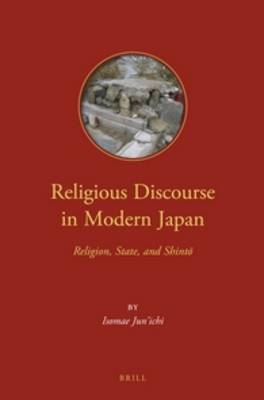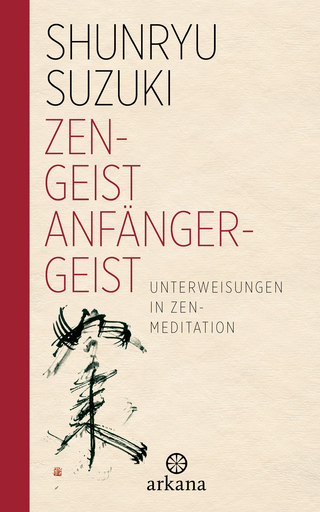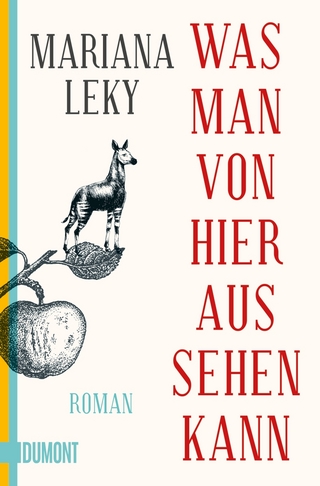
Religious Discourse in Modern Japan
Brill (Verlag)
978-90-04-27261-3 (ISBN)
Religious Discourse in Modern Japan explores the introduction of the Western concept of “religion” to Japan in the modern era, and the emergence of discourse on Shinto, philosophy, and Buddhism. Taking Anesaki’s founding of religious studies (shukyogaku) at Tokyo Imperial University as a pivot, Isomae examines the evolution of this academic discipline in the changing context of social conditions from the Meiji era through the present. Special attention is given to the development of Shinto studies/history of Shinto, and the problems of State Shinto and the emperor system are described in relation to the nature of the concept of religion. Isomae also explains how the discourse of religious studies developed in connection with secular discourses on literature and history, including Marxism.
Isomae Jun’ichi, Ph.D. (2010), The University of Tokyo, is Associate Professor at the International Research Center for Japanese Studies in Kyoto. He studies the discourse and practice of religion and history in Japan. He has published many monographs and articles focusing on postcolonial criticism and postsecularism, including Japanese Mythology: Hermeneutics on Scripture (Equinox/International Research Center for Japanese Studies, 2010), and Iki no shiko: Tasha, gaibusei, kokyo (Thoughts of Threshold: Others, Exteriority, and Homes) (Hosei University Press, 2014).
Acknowledgements
Preface: Religion, Shintō, and the Emperor System The Modern West and the Concept of Religion Shintō and the Emperor System
Introduction: The Development of the Concept of Religion and the Discipline of Religious Studies “Religion” in the West “Religion” in the Non-West Modern Japan in the Debate
PART 1
THE FORMATION OF THE CONCEPT OF “RELIGION” AND MODERN ACADEMIC DISCOURSE
Chapter 1: The Concept of “Religion”: From the Modern Opening of Japan to the Emergence of Religious Studies
- Translating “Religion” as Shūkyō
- From Toleration of Christianity to the Suspension of the Kyōbushō
- Policy The “National Morality” Phase
- The Emergence of Academic Discourse on Religion
- Summary
Chapter 2: Inoue Tetsujirō and the Debates on Religion and Philosophy
The “Comparative Religion and Eastern Philosophy” Lectures
Developments in the History of Eastern Philosophy in Japan
Chapter 3: Buddhism: From Premodern Traditions to Modern Religion
- The “Doubling” of Buddhism
- State Authority and Universalism
PART 2: THE ESTABLISHMENT AND DEVELOPMENT OF RELIGIOUS STUDIES
Chapter 4: Discourse on Religion and Social Reality
- The Tasks of Religious Studies Today
- Anesaki Masaharu’s Religious Studies
The Essence of Religion
Critique of Power and Authority
The National Community Theory
- Making Discourse Relevant to Society
Chapter 5: State and Religion in Anesaki Masaharu
- Religion and the State
Jōdo Shinshū Buddhism and the Imperial House
From Comparative Religion to Religious Studies
- Experience of the West and Representation of Japan
The “Yellow Peril” and Opposition to the West
Mysticism and Discourse on the Kokutai
East-West Harmony and the Representation of Japan
- The Collapse of Harmony Between East and West
Chapter 6: The Process of Development of Religious Studies: From History of Theory to History of Reflective Discourse
- The Study of the History of Religious Studies in Japan
- From History of Academic Theory on Religion to History of Scholarly Discourse
- The Aum Shinrikyō Incident and Theories of Religious Experience
PART 3: THE ESTABLISHMENT OF SHINTŌ STUDIES AND THE STATE SHINTŌ SYSTEM
Chapter 7: Modern Shintō Studies and Tanaka Yoshito
- The National Morality Doctrine
Student of Inoue Tetsujirō
Toward a Japanese Theory of Education
- Tanaka’s Shintō Studies Project
The Imperial Way and Shintō
Shintō and Scholarship
- From the National Morality Doctrine to Shintō Studies
Shinto Shrines as Not “Religious”
Making Shintō the State Religion
Founding Shintō Studies
- Impasse in Shintō Studies
Chapter 8: The Emperor System and State Shintō: Dislocation of “Religion” and the “Secular”
- Theories of Religion in Postcolonial Criticism
- Theories of State Shintō and the Separation of State and Religion
- The Fluctuating Concept of Religion
- The Emperor System as Beyond the Law
Chapter 9: The Interior as the Battleground of Discourse
- Incomprehensible Interiority
Interiority and Religion
Equilibrium Lost
- Marxist Historiography and Religion
Russia and the Rise of Marxism
Russian Marxism and Literature/Religion
Russian Marxism and History
- Toward the History of Japanese Religion
The Merging of Marxist Historiography and Religion
From Wartime to the Postwar Period
Epilogue: Beyond the Debate on the Concept of “Religion”
- A Vision for a New Study of Religion
- Dialogue Under Postcolonial Conditions
REFERENCES
INDEX
| Reihe/Serie | Dynamics in the History of Religions ; 6 |
|---|---|
| Verlagsort | Leiden |
| Sprache | englisch |
| Maße | 155 x 235 mm |
| Gewicht | 895 g |
| Themenwelt | Geisteswissenschaften ► Religion / Theologie ► Buddhismus |
| Geisteswissenschaften ► Religion / Theologie ► Weitere Religionen | |
| Sozialwissenschaften | |
| ISBN-10 | 90-04-27261-5 / 9004272615 |
| ISBN-13 | 978-90-04-27261-3 / 9789004272613 |
| Zustand | Neuware |
| Haben Sie eine Frage zum Produkt? |
aus dem Bereich


